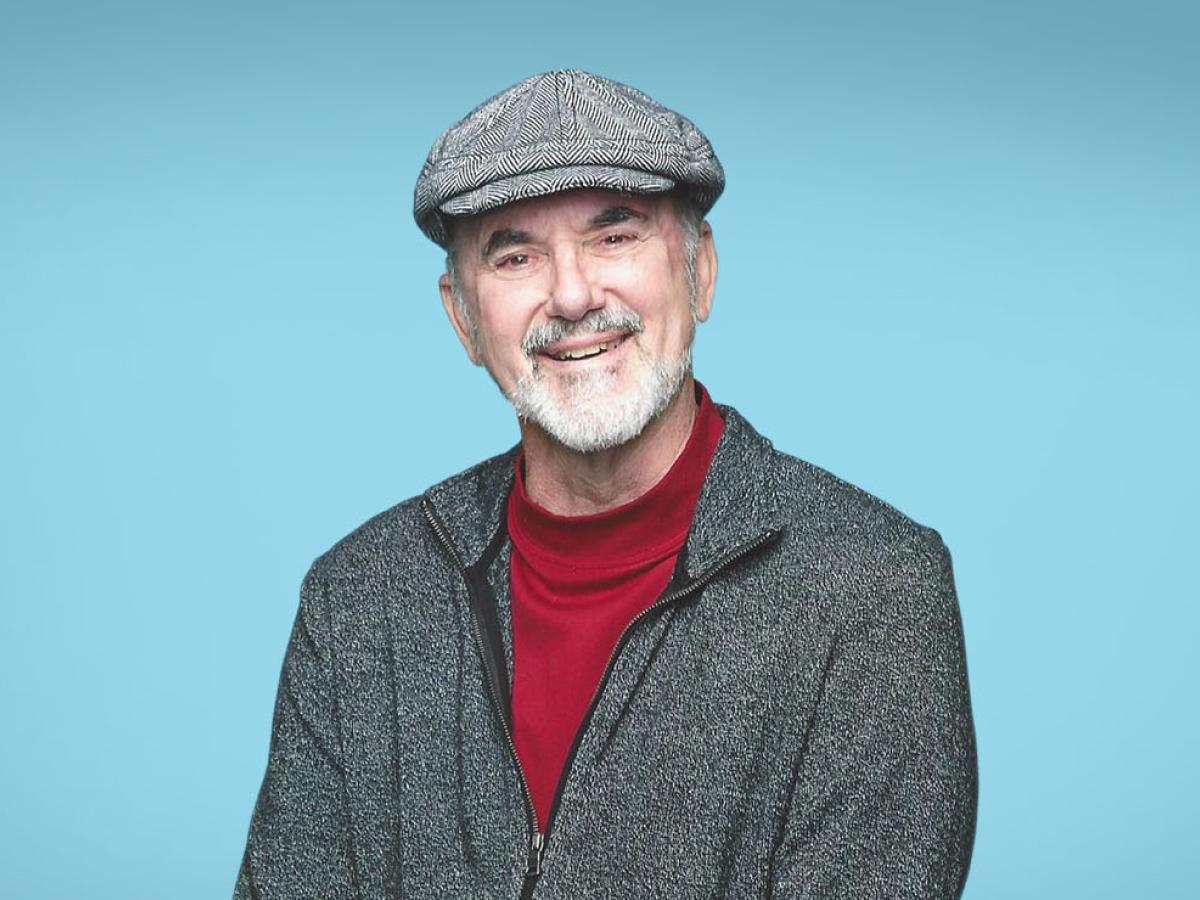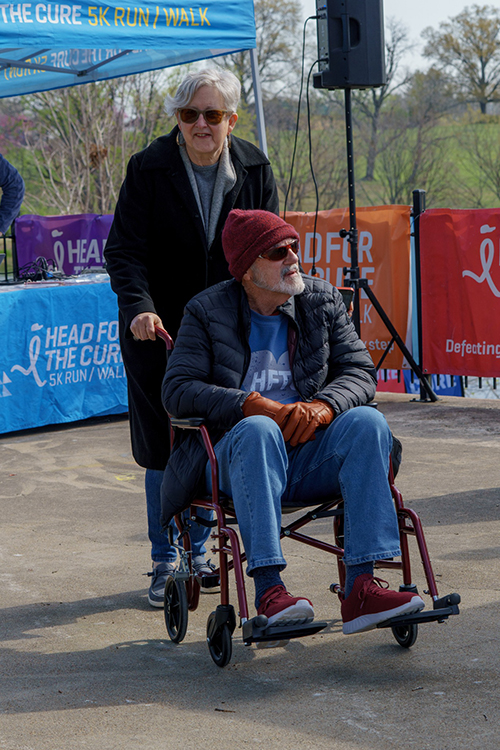By: Tom Sadowski, MU Health Care patient and cancer survivor
November 19, 2025

For most people, April 1 is April Fool's Day. For me, it is the anniversary of my diagnosis with stage 4 glioblastoma multiforme (GBM) — a malignant brain tumor. Last year (2024) marked 25 years — my silver anniversary. Apparently, silver represents durability, which is fitting since I've survived more than two-and-a-half decades since my brain tumor was discovered.
I was diagnosed at age 47, and the details of my medical journey are well-documented. I've been tumor-free since 2001. For me, the whole experience now feels a bit surreal, like it happened to someone else. You might almost convince me that I dreamed it all — or "nightmared" it, if that is a word. Of course, I only have to touch the upper-right backside of my head to feel the scar and small indentation that tell me it really happened.
When people talk about GBM, long-term survival is like a unicorn — a mythical creature. At the time of my diagnosis, the average GBM patient lived nine months. But for me, long-term survival has become a reality. I was diagnosed quickly, which is a key factor in survival given how aggressive GBM is. I've also been blessed to have doctors who took my call on a Sunday when I first had symptoms, were able to administer an advanced treatment when my cancer returned and continue to help me navigate life as a long-term brain cancer survivor.
Living With Glioblastoma Multiforme
When you find out you have Stage 4 brain cancer and the prognosis isn't good, it's easy to focus on the things you might miss. I remember sitting on our back porch while my three kids played and thinking that I'm never going to be at my daughter's wedding. I didn't get as far as thinking about grandkids — though I now have four beautiful grandchildren. Then one day, it hit me: I didn't want to live my life thinking I may only have a short time to live. And that realization changed everything.
Like every cancer diagnosis, finding out I had cancer didn't just affect me. It was also life-changing for my wife, Jatha, and my children. But their positivity and strength helped me be more positive and strong. Jatha has been my rock, always asking all the right questions — even some that our neurosurgeon admitted had never been asked before. And every time my nurses and care team touched me on the shoulder, used my name or asked me a personal question, I was reminded that I am a person (not a case), and I have a life to live.
So I developed a personal mantra to keep me focused. I call it "AAA": accept, adapt and adjust. I'm a very practical person. If something has to be done, then that's what I do. But it isn't always easy. I had to accept that I could no longer play golf or go bowling. I've adapted to my medical issues by getting a transport wheelchair. And I've adjusted to watching my grandkids dance or play basketball even if I'd rather be doing it with them.
I continue to manage a lot of medical issues, including partial loss of peripheral vision, neuropathy, balance problems and Parkinsonism — just to name a few. Trust me, I keep my MU Health Care doctors busy. But because there aren't many long-term survivors of GBM, it’s hard to know whether my issues are related to survivorship (and the effects of my treatment) or aging.
Cancer Survivorship as an Opportunity and a Blessing
It was after my second surgery in 2001 that I first experienced survivor's guilt. I wondered, "Why am I still here after more than two years when so many others don't survive that long?" It took a while for me to recognize that I had been given a gift, and it was meant to be shared. That's when I became actively engaged in the brain tumor community and started talking to people diagnosed with GBM.
I say that I talk to people, but really, what I do is listen. Very little of our conversations is about diagnosis or treatment. More often, we talk about how they are coping, how their loved ones are doing and any other issues they are facing. It's clear to me that the need for this connection is immense. I'm always grateful for the chance to reach out to brain tumor survivors and their families. I just wish those chances — and the number of people diagnosed with GBM — were fewer and farther between.
Through MU Health Care, I've also had the opportunity to make a difference in the medical world. Doctors sometimes use my case to teach medical students. But understanding what I went through and my survivorship requires reaching beyond what's written in my medical file. On several occasions, my wife, daughter and I have spoken with medical students. We answer their questions and share our perspective so that they might understand the patients they will one day treat. MU Health Care knows that if doctors only focus on the medicine and don't treat the person as a person, they are missing an opportunity.
Over the years, I've gotten involved in multiple organizations, including the Boys and Girls Club in Jefferson City, Head for the Cure based in Kansas City and the Cancer Hope Network. After all the love and support I've gotten over the years, it always feels good to give back and make a difference for future generations.
Lessons Learned Along the Way
I've learned a million things during my journey with GBM. I learned not to let survival statistics put an artificial limit on survival. I now know the importance of using someone's name so that they know you truly see them. I understand the impact that personal and professional caregivers can have on someone living with cancer.
But the most critical lesson I've learned is that there is always cause for hope and joy if you allow yourself to be open to them. My family and the patients I work with bring me joy.

My hope mainly comes from my faith and from working with my medical team at MU Health Care. The hope I feel when I talk to my neurosurgeons, Dr. Carr and Dr. Chicoine, is not for me — it's for all people who have been or are yet to be diagnosed with GBM. The ongoing work and research being done to help those facing this disease gives me hope.
In spring of 2016, I got involved in my first fundraiser when Head for the Cure held a 5k in Columbia. At the event, I was asked to say a few words. My message was simple: There is hope. There is always hope.
That message is as true today as it was back then.
Next Steps and Useful Resources
- Curious about treatment options? See our brain cancer services.
- Want more? Read Tom’s patient story.

